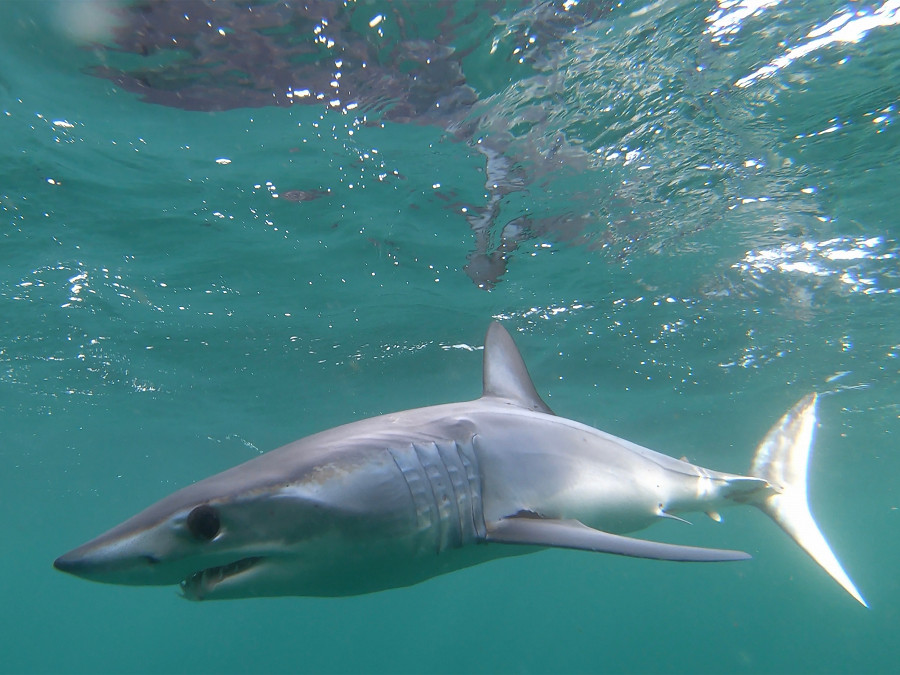Hope for the Recovery of North Atlantic Shortfin Mako
19.04.2021

(19.4.2021) Importance of ecosystem service studied
A full retention ban of shortfin makos (Isurus oxyrinchus) in the Northern Atlantic was proposed during International Commission for the Conservation of Atlantic Tunas ICCAT’s annual negotiations in November last year. It would prohibit to land or trade the species. According to scientists, the ban is urgently needed and would be the “most effective immediate measure” to increase the probability of the stock rebuilding. Even if catches are reduced to zero, this could take more than five decades.
North Atlantic shortfin makos are classified as “endangered” on the IUCN Red List. Due to overfishing for their high value meat and fins, bycatch and recreational fishing, the global population has declined by 60-96% (CITIES Sharks and Rays). While scientists have warned that this decline has been even faster than expected, the EU and the US, two of the major shortfin mako fishing nations, have blocked the ICCAT proposal.
As part of a seminar, the ecosystem services provided by the shortfin mako has now been investigated at CeOS. The provision of economic benefits and environmental services from shortfin mako sharks heavily relies upon a stable population which is currently severely impaired by a declining number of animals. The possible rejection of the ban and the continuous exploitation could lead to loosing this keystone predator with far-reaching adverse effects on the entire ecosystem and its stability. Short-term economic interests therefore need to be set aside to ensure recovery and enable sustainable management in the future.
After Canada established a unilateral retention ban in April 2020, Spain decided to follow their example and the pressing scientific advice. As it is responsible for around 50% of shortfin mako catches in the North Atlantic, the decision gives hope that the ban will finally pass at the next ICCAT negotiations in July 2021.
(author: Rebecca Klant, master student at CeOS as part of the seminar „Economic Valuation of Environmental Services”)